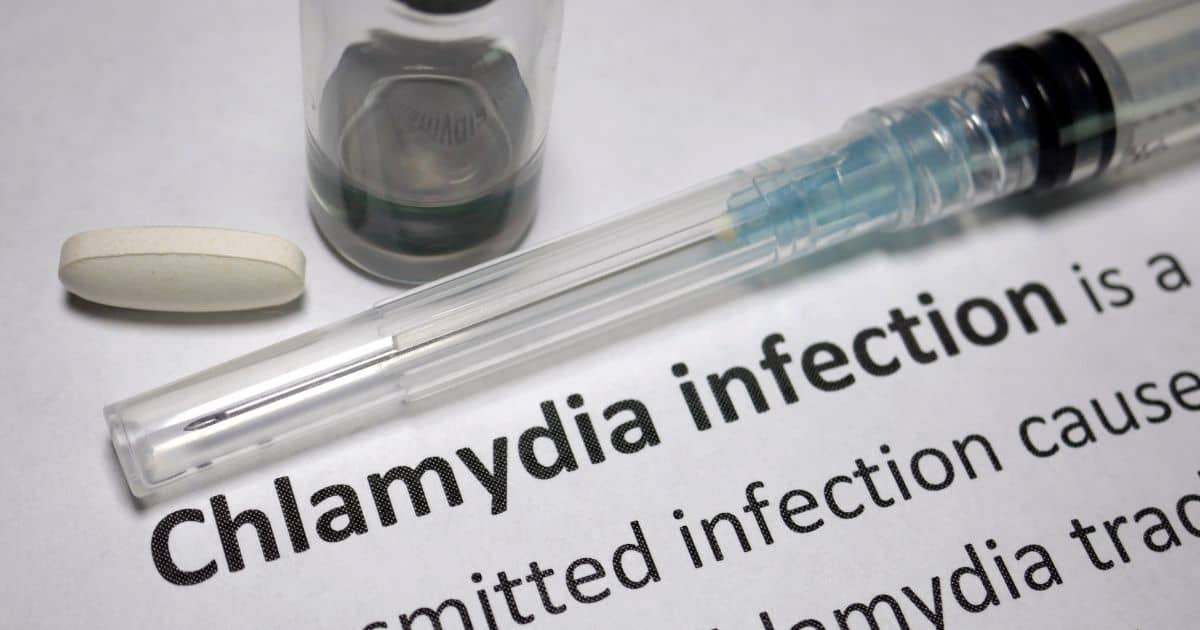Caused by a bacterium, chlamydia ranks among the most widespread sexually transmitted diseases. While it can be cured through the administration of antibiotics, chlamydia is still a somewhat tricky condition. Scientists are constantly uncovering new information about the disease-causing agent that suggests just how complicated its behaviour is.
According to one recent study, the bacterium has the capability to evade the body’s immune response. Here’s how it accomplishes the goal.
The Sneaky Nature of the Chlamydia Bacterium
Chlamydia is one of the STDs that have been surging recently. It’s caused by the Chlamydia trachomatis bacterium. According to some studies, this is the most common STD caused by a bacterium. There’s a simple reason why – most cases of chlamydia infections are completely asymptomatic. Infected individuals can easily pass on the bacterium to their partners, especially if they don’t undergo frequent STD testing.
Immunologists have now been uncovering additional amazing and surprising facts about this pathogen.
The latest study comes from Duke University. Immunologist Jorn Coers has been working on the development of a chlamydia vaccine for years and he’s been examining the way the bacterium interacts with its host’s cells. As a part of his work, he tried uncovering how chlamydia has been capable of evading the body’s immune response.
His findings reveal that the bacterium uses the power of a certain protein to block immune cells from “finding” and targeting it. Obviously, that’s a very simplistic view of the events that take place on a cellular level. The mechanism, however, is astonishing. Other members of the chlamydia family of microorganisms do not have such capabilities and are easily targeted and destroyed by the host’s immune system.
Coers explained that the protein allows Chlamydia trachomatis to put itself under a figurative invisibility cloak. Left undisturbed, it can continue replicating and causing damage until a round of antibiotics is eventually administered.
Adding Antibiotic Resistance to the Mix
The new findings come on top of concerns about the ability of chlamydia to develop resistance towards the most common antibiotics used for the treatment of the infection.
The World Health Organization (WHO) has been forced to come up with new treatment guidelines that address the growing antibiotic resistance when it comes to the treatment of chlamydia, gonorrhoea and syphilis.
Currently, chlamydia responds well to the treatment with various types of antibiotics like doxycycline, erythromycin, amoxicillin and azithromycin. When administered at the correct dose and the right time, these antibiotics are 97 per cent or more effective. Antibiotic treatments also exist for pregnant women, although some of the highly effective options mentioned above are off limits while expecting.
Unfortunately, it often occurs in people who are also co-infected with gonorrhoea. Of all bacterial infections, gonorrhoea is the most antibiotic-resistant one. Thus, finding a suitable and effective treatment option is often challenging.
The overuse and over-prescription of antibiotics is the main cause of the challenges arising today.
WHO’s new guidelines insist on the treatment of STDs with the right antibiotic and at the right dose. National health authorities are also being called upon to monitor responses to antibiotic treatments and map out resistance patterns in an attempt to deal with the brewing public health crisis.
The good news is that new antibiotics are being developed and tested right now. Through a more thoughtful treatment approach and scientific innovation, overcoming bacterial STDs will be possible. In order to reduce the risk of bacteria becoming resistant to new treatment types, however, health authorities will have to increase awareness about the importance of prevention and screening.
Get Tested, Don’t Just Assume You’re Safe
You may think that a condition you can treat with antibiotics isn’t a big deal.
The fact that sexually transmitted infections like chlamydia can be cured can lead to a somewhat light-hearted and irresponsible approach towards sexual health protection.
Chlamydia, while asymptomatic many times, can lead to serious health complications in the long run.
If you don’t get a quick diagnosis, you increase the risk of facing complications like pelvic inflammatory disease, prostate gland infections, infertility, ectopic pregnancies and even infections in newborns (passed on from the mother).
Chlamydia can even lead to issues that are seemingly unrelated. Reactive arthritis is one of those. Chlamydia is the most typical cause of sexually-acquired reactive arthritis. The joints or the eyes could become inflamed due to the condition. This happens during the first few weeks of the infection. Sexually acquired reactive arthritis cannot be cured but there are opportunities to offer relief from the symptoms. Most people will get better on their own in a couple of months.
There are simple things you can do to protect yourself and your sexual partner.
The easiest ones include using barrier contraception and getting tested for common STDs at least once or twice per year. The fact that you’re in a committed monogamous relationship doesn’t mean you should skip testing altogether. That’s the responsible thing to do for yourself and for that special someone in your life.
STD testing opportunities are available in Singapore. Shim Clinic offers such in professional, confidential settings. Visit Shim Clinic during working hours every day of the week or contact us now to find out more.

